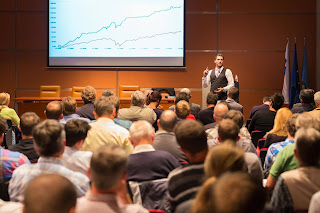Different Stages of an Event Marketing
Event
Marketing is an effective marketing form that is helpful in leaving a
positive impact on the audience. A number of marketing strategies are
used by businesses to increase brand loyalty among consumers in
events. An event can be anything that is scheduled for a specific
time and place – either it is a business meeting or a conference.
To successfully generate the event, a professional experiential
marketing service
can easily help the businesses to reach the right audience.
Event
Marketing – Stages
Market
Research – Targeting the potential audience
Audience
Prospective Survey – Includes speakers, Place and more
Planning
the Timeline – Deadlines, Processes, and event duration
Implementation
– Checking all the objectives are achieved
Analysis
– Gathering quick feedback after an event
What
Does an Event Marketing Process Include?
A
well-equipped event Includes:
Venue
– Any public event venue or big conference hall.
Equipment
– Projectors, laptops, loudspeakers, and Wi-fi
Stationary
– Notepads, pens, boards, charts, and markers to create an amazing
session
How
Does an Event Work?
In
any event, there is a need to determine the number of attendees that
are going to attend an event. A target audience is a group of
individuals that have a right profile for an event. An event should
be focused on the message that tells the audience how business
services will solve their problems and fulfill all the business
needs.
Organizing
an event is tough, especially if a business has limited time and
resources. In order to execute an event successfully in front of the
audience, it’s wisest to intake the support of a professional event
planner. An experiential
marketing agency
agency helps the businesses to implement an event with complete
details like seating, lighting, location, budget and all other
requirements.


Comments
Post a Comment